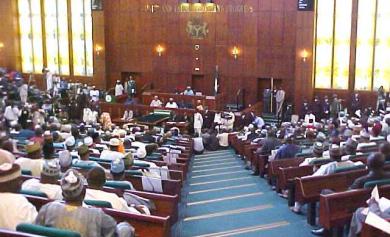
As part of efforts geared towards improving telecommunication network across the country, the House of Representatives has mandated its Committee on Communications, when constituted, to look into the unsatisfactory service provided by telecommunication companies in Nigeria.
Adopting the resolution of a motion moved by Hon. Eddie Ifeanyichukwu Mbadiwe on Thursday, the House lamented that the services as provided by the telecoms companies at present cannot encourage economic growth in Nigeria.
“The services of the current mobile providers are irregular, epileptic, irritating, and expensive and sometimes frustrating, certainly not up to the speed to drive the economy of Nigeria,” Hon Mbadiwe said.
He added, “That the projects advance in Nigeria as a fast emerging economy vis-a-vis the Millennium Development Goals, MDGs, and Vision 2020 may be stunted.”
He noted that globally, tariffs have dropped while those of Nigerians remain on the high side, even when compared with that of neighbouring countries.
In his contribution, Hon Ibrahim Shehu Gusau, who was head of several departments in MTEL/NITEL, highlighted the challenges faced by the players in the telecom sector as the reason for poor service delivery.
“Every base station has at least two generating sets and two security guards and the high cost of running on diesel is not included,” he said.
Contributing to the debate, some returning lawmakers informed the legislators that the 6th Assembly already investigated the same issue in question and summoned all relevant parties to give their submission on the matter.
They asked the House to be slow in passing the blame on the telecoms companies, as most of the quality of their service is affected largely by the harsh business environment in Nigeria.
Speaking against the motion, representatives Mohammed Wudil (PDP, Kano State), Ini Udoka (PDP, Akwa Ibom) and Tahir Moguno (ANPP,Borno State) informed the lawmakers that the telecom companies had to pay for infrastructure, security and power facilities, the cost of which they transfer to the customer.

